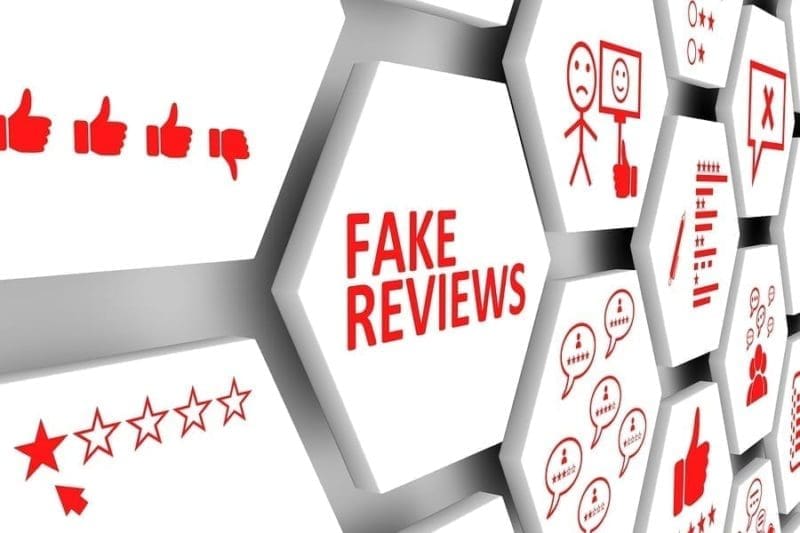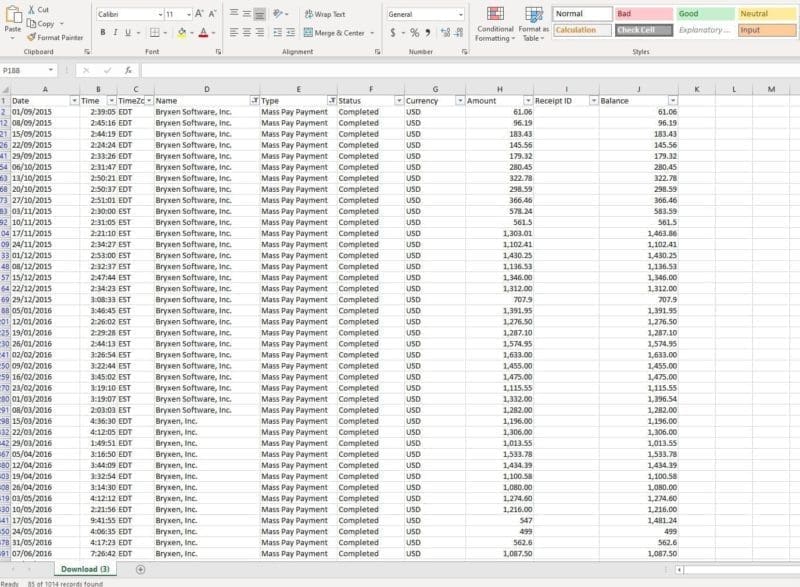Before I started this review site, I spent many years as a freelance writer writing ‘reviews’ for clients. These ‘reviews’ were simply rewrites of the sales page. I had no experience with the product or course, so I had no real experience to draw from. Essentially I was writing a fake review. My clients didn’t care about that. They had a review template that I was to write from, and that was good enough for them. I grew tired of writing these fake reviews for others, so I dropped my clients and I started my own review site – this site, where I review things that I have actual experience with. It now drives me insane when I read a fake review based on nothing but ramblings and guesses and pressure tactics. From all my years of writing reviews, I have some experience spotting a real review and a fake review. Here are the top giveaways of a fake review for me.

The Words ‘Scam’ or ‘Discount’ or ‘Honest’ Are In The Post Title: These Are Marketing Ploys And Often Lead To A Fake Review
A lot of site owners will use these trigger words in their titles to draw in people to their reviews and provoke some sort of feeling that may get you to click out and buy.
For instance, if you think you can get a discount on a course, then you are likely going to check out their post, click on their ‘discount link’ (which is usually the same price you will pay anywhere else), and feel like you got a really good deal.
Even I want to get a discount, so despite the fact that I know better, these titles can draw me in too.
Affiliate: Someone who is partnered with a company, and they benefit from their relationship in some way – usually with financial compensation.
Sometimes affiliates do get discount links to offer their readers. Usually, these discounts only last for a few weeks. They are not constant, so we can’t always promise a discount in the title of our post and all throughout our post.
Sometimes people who use these marketing ploys will actually write a real review, but I have already lost trust in those affiliates because they are including unnecessary marketing ploys. I mean, even if your review is honest, you don’t need to mention that in the title… it should be implied that you are writing an honest review.
For the ones who write a fake review, the title is what they depend on. The review is just meant to give you insight into the sales page, company, and thought behind the product or program and whether or not it is a scam or you can get a discount on it.
Sometimes people who write a fake review but use a lot of trigger phrases to get you to buy, write a review that doesn’t even make sense because they know you are not going to spend time reading it anyways if you want the ‘discount’.
The fact that some affiliate marketers use these trigger words in their post titles drives me insane.
For instance, nobody would write a review on something and include an affiliate link if they thought it was a scam. NOBODY! Instead, they would tell you it’s a scam and to avoid it at all costs.
Also, nobody needs to include the word ‘honest’ in their title. Reviews should be honest by nature.
You will find that in these ‘Is this a scam?’ reviews, it’s almost always decided by the writer (I’ve never seen it not written that way) that it’s NOT a scam and you should go and buy it.
Plus, you will see the words, ‘Is it a scam?’ a few times throughout the review, which helps boost their search engine rankings when people are looking for whether or not a product or program is real or not.
Obvious Rewrite Of The Sales Page Normally Leads To A Fake Review
A rewrite of the sales page is a review of the sales page, not the program. This is the kind of fake review my clients wanted me to write all the time. And, this is what a lot of affiliates who don’t have experience with what they want to promote do.
How can you spot a rewrite of the sales page? It usually has headings as follows, not necessarily in this order.
- About (The Company/The Creator/The Author)
- How (The Program) Works
- What You Get In (The Program)
- The Cons
- The Pros
- The Price And Refund Policy
- The Bottom Line
Under each of these headings, you will find general information that anyone could find out by doing a little research into the company and the program.
A real review can have some of these headings and include some information that you will be able to find on the sales page or easily online, but you will also find a lot of information that reflects the reviewer’s personal experience.
For instance, under the heading, ‘What will you get…’, you should see unique screenshots or pictures of the actual program or product. You should also get some detailed insider information about what you get that you can’t find on the sales page. You should not just get told things that are on the sales page.
The Words ‘I’ Or ‘We’ Are Missing From The Review
If someone is writing a real review, then they will talk about their experience with the program at some point. That means the words ‘I’ or ‘We’ will show up somewhere in the review and include a personal experience about an aspect of the product or program.
If someone is writing a fake review, they don’t have any personal information to pull from so personalized words and stories are usually missing from the review.
That said, I have seen some sneaky affiliates write a story about themselves in relation to the product, even though it’s obvious they have written a fake review. This is meant to make readers think that they wanted to use the product or have some experience with the product, but the review lacks personal information about what they experienced with the product, which makes it obvious to me that it’s most likely a fake review.
So if you see a personal story, but then the rest of the article looks very impersonal, then you are probably looking at a fake review.
What Doesn’t Indicate A Fake Review
Just because someone receives a product for review or is an affiliate for the product doesn’t mean that they are writing a fake review.
A fake review is written by affiliates who just want to make money at any cost. But, the majority of affiliates out there write real reviews.
In fact, most affiliates actually give a crap about their readers and wouldn’t want to be caught writing a fake review. They want to help their readers make a decision about a product. Furthermore, they want to introduce helpful products to their readers that they might not otherwise hear about.
So, if you find out someone is an affiliate for the product they are reviewing, do not decide that the review must be a fake review. Instead, let their words and the review itself give you an indication of whether or not they used the product and truly want to help you decide if you should use it too.
And if you are not sure, ask the reviewer questions about the product. Someone who has actual experience with it will be able to answer your questions in a detailed way. Someone who can’t or won’t ask your questions is likely writing a fake review.


